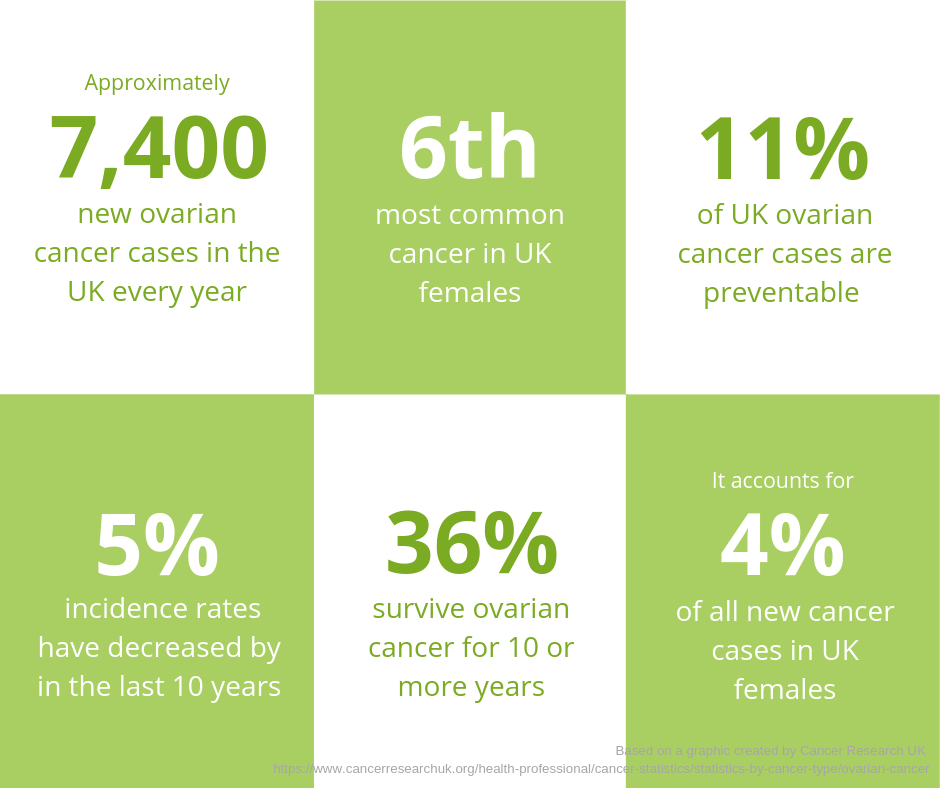Study suggests GPs are failing to detect early signs of ovarian cancer
- 10.05.2019
- JessicaMG
- Clinical-negligence, Clinical-negligence
Research from charity Target Ovarian Cancer suggests that women are dying unnecessarily due to GPs’ failure to spot early signs of ovarian cancer.
The study revealed that in certain parts of the UK less than 30% of cases are identified early, while the average number of cases spotted early across the UK stands at 42%.
Early identification of ovarian cancer is crucial as during early stages, the disease – often labelled the ‘silent killer’ due to the difficulty in detecting symptoms – is less likely to prove fatal.Target Ovarian Cancer added that too many women with ovarian cancer are having to make repeat visits and facing delays in testing before receiving diagnosis and treatment, while the charity’s experts fear too many GPs mistakenly believe that symptoms are only present in late stages.

Common symptoms of ovarian cancer include feeling full quickly, pelvic or abdominal pain, bloating, urinary symptoms such as needing to use the toilet more frequently, and appetite loss.
One woman, Jennie Allen from London, brought her symptoms to the attention of her GP, only to be told they were likely due to food intolerances and a bladder infection. However, after seeking the opinion of another doctor, she was sent for tests and, unfortunately, found that she had advanced ovarian cancer.
Mrs Allen said: “Despite a complex gynaecological history, my GP first sent me for tests for IBS, a bladder infection, then to see if I had coeliac disease. At this point I was frustrated, and went to see another doctor for a second opinion, and insisted on having a CA125 blood test.
“From there, I had ultrasound scans and found out I had advanced ovarian cancer. Too many women get fobbed off and told they have bladder infections, IBS, that it’s to do with the menopause. This must change.”
Director of communications at Target Ovarian Cancer, Alexandra Holden, added: “Women's lives are still being cut short because their diagnosis came too late. Delays due to a lack of public awareness, GPs missing the symptoms, or delays in diagnostic testing, are completely unacceptable.”
Last year, however, Theresa May vowed to take steps to increase early detection in all cancers from one in every two people as it stands today, to three in every four by 2028.
Lesley Herbertson, Partner and Senior Clinical Negligence Solicitor here at Potter Rees Dolan, comments:
It is shocking that in 2019 medical professionals are still failing to recognise the early signs of ovarian cancer or to ensure that a patient receives a formal diagnosis and appropriate treatment promptly, with the effect that lives are jeopardised unnecessarily.
At Potter Rees Dolan we have seen far too many cases in which worrying symptoms were not taken seriously enough by a treating doctor, thus leading to a delay in treatment and a much worse outcome for the patient. Whilst defensive medicine is to be avoided, erring on the side of caution (within reason) protects the patient and ultimately the doctor. Surely, therefore, taking a more cautious approach should play a major part in the way forward.
Lesley Herbertson is a clinical negligence solicitor here at Potter Rees Dolan. Should you have any queries about clinical negligence issues or indeed any other aspect of this article and wish to speak to Lesley or any other member of the team please contact us on 0161 237 5888 or email Lesley directly.
